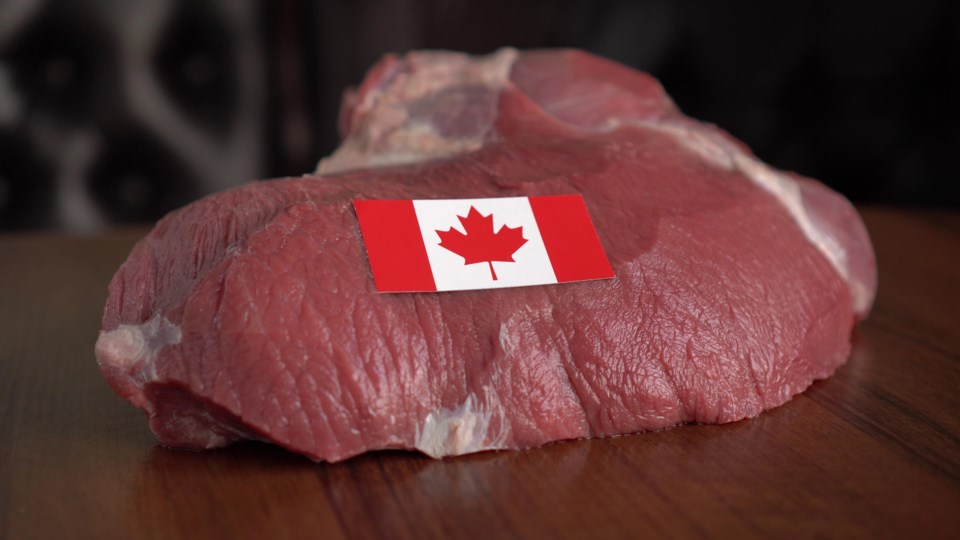If a conversation turns to the topic of trade, Nathan Phinney isn’t willing to pull his verbal punches.
Phinney, the Canadian Cattle Association president, said Britain joining the Comprehensive and Progressive Trans-Pacific Partnership is bad news for livestock producers.
“The Canadian beef industry is built on trade and export and we’re a strong advocate, when it comes to good trade deals,” Phinney said from his farm near Sackville, N.B.
“When we’re saying it’s a bad trade deal and bad for Canadian producers, that’s a red flag.”
Phinney and others in Canada’s red meat industry are disappointed and frustrated that Canada is welcoming the United Kingdom into a CPTPP — an agreement between Pacific nations and now Britain.
Last weekend at a signing ceremony in New Zealand, Britain became the 12th member of the trade pact, joining Canada,
Australia, Brunei, Chile, Japan, Malaysia, Mexico, New Zealand, Peru, Singapore and Vietnam.
Mary Ng, Canada’s minister of international trade, issued a news release July 15 welcoming Britain into the CPTPP.
The federal government may want Britain in the deal, but the Canadian Pork Council, Canadian Cattle Association and the Canadian Meat Council do not.
“The main area of concern for our industry is the failure to accept Canada’s meat inspection system, widely recognized as one of the finest in the world,” the three groups said.
“The U.K. does not accept Canada’s food safety and animal health systems and measures, and those non-tariff barriers limit our access to the U.K. market.”
The organizations say letting Britain into CPTPP is a repeat of a previous trade mistake.
In 2015, Canada signed the Comprehensive Economic and Trade Agreement (CETA) with Europe and assumed the Europeans would sort out the details of meat trade, after the fact.
That didn’t happen.
Trade barriers are still in place, as Europe doesn’t recognize the safety of Canada’s food production system.
“Everyone in the world knows that Europe is hard to trade with,” said Stephen Heckbert, Canadian Pork Council executive director.
“Europe and the U.K. are a bit professional when it comes to non-tariff trade barriers. They’re just really good at it. They always find ways of keeping an unfair balance in the market.”
As a result, since CETA was signed in 2017, Canadian pork exports to Europe have dropped to nothing.
And beef exports have climbed modestly to $22 million.
Meanwhile, EU pork and beef shipments to Canada reached $399 million in 2022.
Phinney said cattle producers are frustrated by the recent decision to let Britain into the CPTPP, because it’s part of a trend where the government doesn’t defend Canada’s food production system.
In this case, Canada is allowing Britain to join the CPTPP, despite the U.K. position that Canada’s food system is unsafe.
“Our government is moving ahead with it. Instead of completely road-blocking it and saying until these issues are resolved, we are not supporting it,” Phinney said.
“(If the government did that) all 60,000 beef farmers across the country would be supporting that.”
A spokesperson for Ng said the federal government is pushing the U.K. on fair access to its market.
“We are working closely side by side with industry towards solutions that meet the needs of Canadian producers, workers, and the communities they support,” said Shanti Cosentino.
While Canadian farmers are unhappy, the British National Farmers Union supports the U.K. joining the CPTPP.
As long as Canadian beef and pork are kept out.
“I am pleased that our government continues to maintain its commitment to our food safety standards,” said U.K. NFU president Minette Batters. “It is an absolute red line for us that food produced using practices that are illegal here — for instance, the use of hormones in beef and pork production and chemical washes for carcases — should not be allowed on our market.”
Such positions are not based on science, Heckbert said.
“Let’s not start a story (through) the U.K. and the EU, that somehow they have better standards. They don’t…. Japan has the highest food safety standards in the world and they love our pork.”
For Britain to join the CPTPP, Canada and other nations must pass legislation to make it official.
The pork and beef organizations will lobby politicians to vote against the legislation.
“Canadian beef producers cannot support the accession of the U.K. into CPTPP until our bilateral trade barriers with the U.K. are addressed,” Phinney said.
“We’re expected to just carry on and move forward. Well, that’s not happening.”
Contact [email protected]




